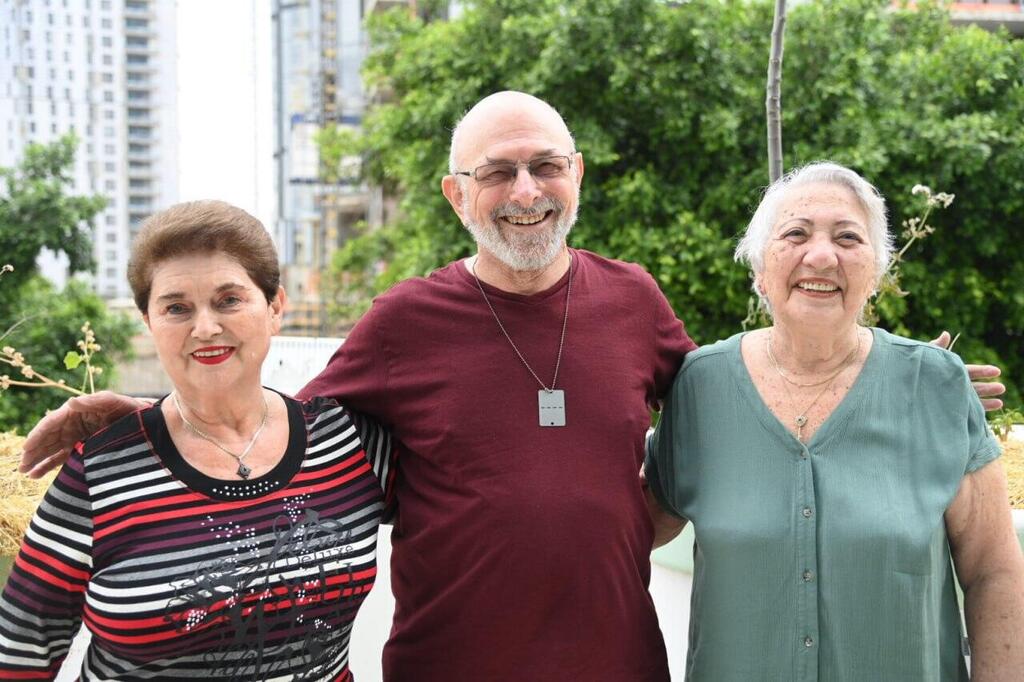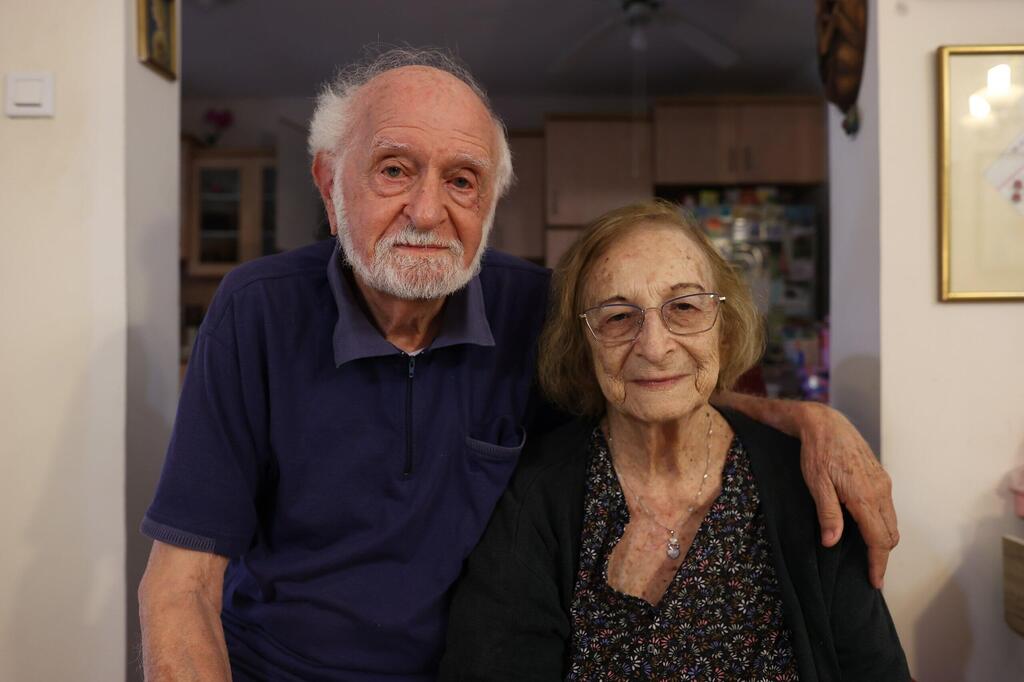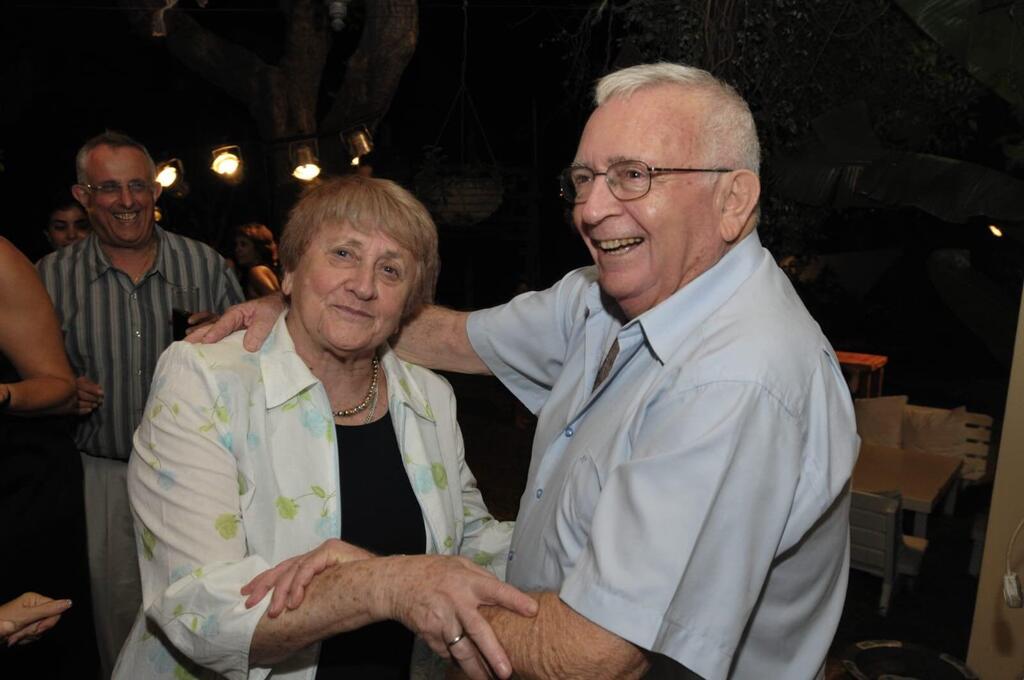Getting your Trinity Audio player ready...
“What does an old person have in life?” asked the poet David Avidan. For 78-year-old Rauma Zeltzer, the answer is far brighter than Avidan's melancholic tone suggests: “Sports, dancing, lectures,” she lists. “But most importantly—company. You have to leave the house.”
Zeltzer belongs to the “Baby Boomer” generation, born during the post-World War II population surge, which is now entering old age. As a result, Israel’s elderly population is steadily growing, currently standing at 1.2 million people. In the past year alone, approximately 39,000 Israelis joined the 65-and-over age group. The fastest-growing subset of this population is those aged 80 and older.
While Israel’s proportion of elderly citizens remains low compared to other Western countries, the aging population is growing faster than the overall population. This means that Israel is aging, albeit at a slower pace than the rest of the world. According to a Brookdale Institute report, 13% of Israel’s population is aged 65 or older, compared to 11% a decade ago. That figure is projected to rise to at least 14% by 2040.
This demographic shift has significant health, social and economic implications. “There is a big difference between a 65-year-old and an 85-year-old,” explains Professor Michal Grinstein-Weiss, CEO of the Myers-JDC-Brookdale Institute. “But macro-level data about this population is essential for policymakers.”
Health challenges are a major concern as the elderly population grows. People aged 65 and older are hospitalized at three times the rate of their proportion in the population. Additionally, senior citizens are more likely to suffer severe injuries or fatalities in traffic accidents compared to younger age groups.
“Many elderly people remain healthy and functional, but statistically, we see a decline in functional abilities and an increased need for healthcare and welfare services as age progresses,” explains Dr. Yitzhak Shnor, a researcher on aging at the institute. By age 75, about one-third of elderly people report difficulties with daily activities such as walking, climbing stairs, or performing household tasks.
Improving the quality of life for seniors requires coordination between multiple government agencies, as responsibility for aging issues is divided among the Ministry of Welfare, the Ministry of Health, the National Insurance Institute and health funds. “We’ve established a policy planning division to strengthen cooperation between these entities,” explains Yariv Mann, head of the Senior Citizens Division at the Ministry of Welfare. However, he admits, “Aging is not sufficiently prioritized on the government or public agenda.”
Mann emphasizes that while Israel has a long life expectancy, “we are aging unhealthily.” He highlights the importance of social preparation for retirement: “Maintaining connections, being present in public spaces, and planning for this stage of life is critical. The state needs to encourage this.”
The Ministry of Welfare supports seniors by funding social service departments that operate social clubs and day centers for the elderly. “This is proactive care,” Mann says. However, the ministry acknowledges that these services are not widely available and require additional funding to expand their reach.
Loneliness is another significant challenge highlighted in the report. According to the Central Bureau of Statistics' latest Social Survey, 87% of senior citizens report having friends, but this is 6% lower than the general population.
Get the Ynetnews app on your smartphone: Google Play: https://bit.ly/4eJ37pE | Apple App Store: https://bit.ly/3ZL7iNv
Zeltzer fully supports the idea of investing in social, intellectual and physical activities for seniors. For the past 15 years, she has been a regular at the Reich Center for Senior Citizens, operated by the Tel Aviv-Yafo Municipality. Her schedule is packed with activities offered at the center in her hometown. “When you’re around people, you realize you’re not a plant. You’re a person,” she says.
Arie Tavik, 78, another regular at the center, agrees that staying active is key to his quality of life since retiring. “Retirement is the best job I’ve ever had,” he says, describing his routine, which includes physical activity and socializing at the center. However, the lack of access to such services isn’t always due to availability but sometimes emotional barriers.
“Some people struggle to define themselves as senior citizens,” says Shmuel Firstein, director of the Reich Center. “It’s also difficult because it’s a new framework, like starting at a new school.” But, he adds, taking on this challenge is crucial to maintaining vitality. “Learning bridge at 70, for example, means learning new rules, exercising memory, and keeping the mind active. And when you succeed, the satisfaction is immense.”
Despite the challenges of aging, data from the Central Bureau of Statistics shows that 90% of elderly Israelis report being satisfied or very satisfied with their lives—a figure nearly identical to the general population.
“Yes, there are aches and pains,” says 78-year-old Frida Shabtai. “But there are no more worries. There’s nowhere to rush to. If you feel like going to the community center, you go. If not, you don’t have to. Now, we live for ourselves.”




